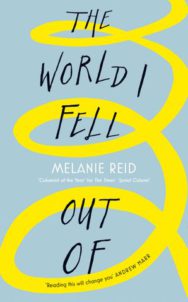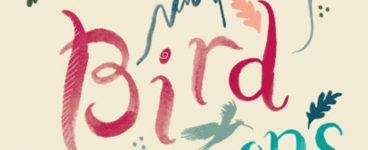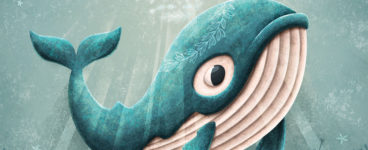‘The real underlying strength of this book is in the quality of its cliche-free, unsentimental reportage from this occasionally brave new world in which Mel finds herself.’
David Robinson found a lot to love and admire in reading Melanie Reid’s memoir of coming to terms with disability after her life-changing accident.
The World I Fell Out Of
By Melanie Reid
Published by 4th Estate
Everyone liked Mel. That’s the way I remember it, half a lifetime ago. Everyone liked Mel, because how could you not? She was warm and funny and bright and far more than halfway beautiful. Tall, of course: that, along with a full-beam smile, was her defining physical characteristic. And though I didn’t know her as well as I would have liked, back in our pre-kids, partying yesterdays, she seemed the very embodiment of joie de vivre. Even in a newspaper features department full of golden, flowering talent, her own writing stood out for its intelligence and panache. It still does.
On Good Friday 2010, Melanie Reid became tetraplegic after breaking her neck and back in a riding accident. For those of us who knew her a small bit, and for hundreds of thousands who don’t, the column she subsequently began writing in the Times has become required reading. Every Saturday, amid the magazine’s lifestyle features and high-end travel adverts, her dispatches from Planet Disability mix the blackest, bleakest humour with insight and wisdom from a world now lived at wheelchair height. Deservedly, it has won her awards both from Buckingham Palace (for services to journalism and disability) and from her fellow hacks. And good as they are, her new book, The World I Fell Out Of, is even better. So good, in fact, that I’ve even found myself doing something I’ve never done before: reading out whole chunks of it to my family.
Why? There are so many reasons and, before you ask, not a single one of them is to do with log-rolling, loyalty or friendship. The main one is honesty. These days, I mainly work as a ghostwriter, and when you are helping someone to describe their life, they usually want to talk about achievements, awards won, and how they made a mark on the world. This is understandable, but deluded: most readers just don’t care.
What they want from a memoir instead is a book which tells them what it is like to be somebody very different from themselves, adding width to their minds and understanding to their lives. Think of the very best Scottish memoirs of the last ten years – Richard Holloway’s Leaving Alexandria, for example, or Sally Magnusson’s Where Memories Go – and what sticks in the mind is the sharpness of their focus on lost love (divine in one case, maternal in another) and the clarity with which they describe struggles, sorrows, and rare but beautiful moments of redemptive joy. I will never be an Anglican monk or archbishop no more than I will (because my mother and father both died young) ever know about what it is like to lose a much-loved parent to dementia, but both those books told me that, and more.
The World I Fell Out Of belongs in this premier league: moving, honest, but – just in case you think it’s going to reek of worthiness – darkly droll too. Take this moment when Daz, the handsome RAF helicopter winchman who hauled up her shattered body from the grounds of a Perthshire riding school turned up almost a year later at her Glasgow hospital’s spinal unit gym to see her. He arrived just as Mel was trying and failing to shuffle her body from a wheelchair into a cut-in-half car.
‘“I’m really sorry I’m crying,” I sobbed, desperately trying to find a dry bit on my forearm to catch the mucus. “It’s just that I’ve been trying to get into a Fiat Punto.”
“Oh don’t worry,” said Daz, who routinely dangled on a cable over mountainous seas and cliffs to rescue people. “Getting into a Fiat Punto would make me want to cry too.”’
But look behind that anecdote, and there’s a different story. It is indeed one of mucus, and tears, and determination and yes, she admits in hindsight, a kind of madness that pushed her further than almost anyone with as bad injuries in the unit had gone. Walking again, however jerkily and mechanically assisted, became an obsession, as did forcing her body’s recovery beyond the plateau at which intensive physiotherapy would be withdrawn. Every twinge in her paralysed body, every willed wiggle of a toe, became a moment of hope. Miracles were possible, weren’t they?
All this time, she had avoided facing up to the physical reality of her wrecked body. So when the Times wanted a photo of her walking with the help of a Lokomat machine (“the supercar of the neuropathy world”), she turned them down. How about a picture of her MRI scan of her wrecked neck? Not even that. Because if her body had endured radical surgery, so too had her psyche. And time wasn’t particularly good at healing that either, what with all the feelings of guilt for what she was inadvertently putting her husband and son through, the psychological impact of double incontinence, the onset of depression, tearful rages at her inability to do the simplest of things, and the sudden slippage of any sense of self-worth.
Writing to a reader who had also broken his neck in a riding accident and was contemplating suicide, she writes that she had similar thoughts but was “in a trap of my own making, writing ‘inspirational columns’”. Reid is ridiculously hard on herself here, yet there is indeed a difference between the book, where she can admit such a thing, and her journalism, where she can’t. The book is similarly more honest about the nature of her second fall, which finally ended her lifelong love affair with horse riding. Unexplained in her column because she was too embarrassed to admit it, this was actually a freak accident at a supervised session of riding for the disabled.
Yet it’s important not to downplay the journalism too, because the real underlying strength of this book is in the quality of its cliche-free, unsentimental reportage from this occasionally brave new world in which Mel finds herself. Want to know what life is like among the half-neglected geriatrics awaiting hip replacements or find out what wide cross-section of humanity finds itself being intensively coaxed in the neurophysiotherapy classes? What kind of people are they, these harried nurses, loving auxiliaries (with some exceptions) handsome RAF winchmen, wise consultants, readers whose generosity might make you weep (that was you, Judith from Twickenham), and fellow non-walking wounded in the wards? How do her husband and son cope with such a loss? All of this is written up with the same kind of affection and intelligence and wisdom which Melanie Reid seems to bring to everything her mind touches, from describing her lifelong love of horses to her rage against teenage girls’ obsession with ideal body image.
The book ends, if not in acceptance of her paralysed body then at least in the realisation that the world still contains joys she can share, the quieter ones of nature around about what sounds very much like an idyllic cottage in the Trossachs and a sturdy enough marriage to her likeable, no-nonsense husband Dave. And even though tormenting memories will always linger from the world she fell out of, with its newspapers to run, mountains to be skied, trails to be hiked, stairs to be raced up, horses to ride and quick twirls to be made in front of the mirror before heading out for the night, as I finished this moving, mind-changing and well-written book, I couldn’t help but hope she finds all the happiness she possibly can in the world she fell into too.
The World I Fell Out Of by Melanie Reid is published by 4th Estate, priced £16.99.
Melanie will be at the Aye Write! Book Festival at the Mitchell Library in Glasgow on Saturday 30 March and at the Ullapool Book Festival on Saturday 11 May.
















